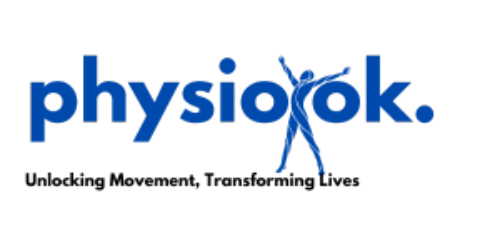Spinal cord injuries (SCI) can have life-altering impacts, ranging from partial loss of mobility to complete paralysis. Physiotherapy plays a vital role in rehabilitation by promoting mobility, strength, and independence while addressing secondary complications like muscle stiffness and poor circulation. Here's how physiotherapy helps SCI patients on their journey toward recovery and improved quality of life.
Goals of Physiotherapy in SCI Rehabilitation
- Maximize Independence: Improve functional abilities like sitting, standing, and walking (if possible).
- Prevent Complications: Reduce risks of pressure sores, joint contractures, or respiratory issues.
- Restore Mobility: Re-train the nervous system and muscles to enhance movement.
- Build Strength and Endurance: Strengthen unaffected muscles to support everyday activities.
- Improve Quality of Life: Enhance participation in social and recreational activities.
Key Physiotherapy Techniques for SCI
1. Range of Motion (ROM) Exercises
- Maintain joint flexibility and prevent stiffness or contractures.
- Passive ROM exercises for paralyzed limbs and active ROM for partially functional muscles.
2. Strength Training
- Focuses on strengthening muscles above the level of injury to compensate for lost function.
- Use of resistance bands, weights, or bodyweight exercises.
3. Functional Electrical Stimulation (FES)
- Delivers electrical impulses to paralyzed muscles to stimulate movement.
- Helps improve muscle strength, circulation, and bone density.
4. Gait Training
- For patients with partial recovery, walking aids like parallel bars, harnesses, or robotic exoskeletons assist in re-learning walking patterns.
- Enhances coordination, balance, and muscle function.
5. Postural and Balance Training
- Improves core strength and stability for better sitting and standing balance.
- Reduces the risk of falls and promotes functional independence.
6. Respiratory Physiotherapy
- Vital for patients with injuries affecting the chest muscles or diaphragm.
- Includes breathing exercises, chest physiotherapy, and cough assistance techniques.
7. Hydrotherapy (Aquatic Physiotherapy)
- Utilizes water's buoyancy to reduce weight-bearing and facilitate movement.
- Improves muscle strength, flexibility, and cardiovascular fitness.
8. Wheelchair Skills Training
- Teaches proper wheelchair techniques like propulsion, turning, and navigating obstacles.
- Aims to improve mobility and independence.
Secondary Complications Addressed by Physiotherapy
- Pressure Sores: Educates patients on frequent position changes and proper cushioning techniques.
- Spasticity: Combines stretching, medications, and modalities like heat or cold therapy.
- Pain Management: Uses manual therapy, TENS, and exercise to alleviate pain.
- Bladder and Bowel Function: Guides exercises for pelvic floor strength and posture to assist with bowel movements.
- Psychological Support: Encourages emotional well-being through exercise and improved function.
Rehabilitation Stages in SCI
- Acute Phase: Focuses on preventing complications, managing pain, and maintaining joint flexibility.
- Rehabilitation Phase: Emphasizes functional recovery, mobility training, and strength building.
- Community Integration Phase: Prepares patients for daily life and independence, including vocational training.
Innovations in Physiotherapy for SCI
- Robotic-Assisted Therapy: Devices like robotic exoskeletons aid in walking and strength recovery.
- Virtual Reality (VR): Provides immersive environments to stimulate movement and improve motor control.
- Neuromodulation: Techniques like spinal cord stimulation help restore voluntary movement.
Tips for SCI Patients in Physiotherapy
- Consistency is Key: Regular sessions ensure steady progress.
- Set Realistic Goals: Work with your physiotherapist to establish achievable milestones.
- Engage Family and Caregivers: Support from loved ones enhances motivation and compliance.
- Stay Positive: Progress may be slow, but every improvement matters.
Conclusion
Physiotherapy is essential for spinal cord injury patients to regain mobility, strength, and independence. Through tailored exercises, advanced technologies, and emotional support, physiotherapists empower patients to overcome physical and emotional challenges. With dedication and expert care, SCI patients can achieve significant improvements in their quality of life.
